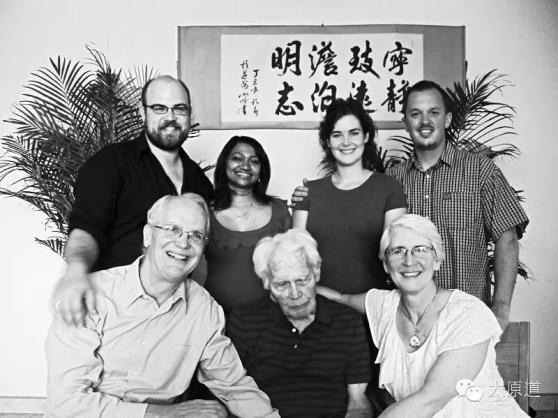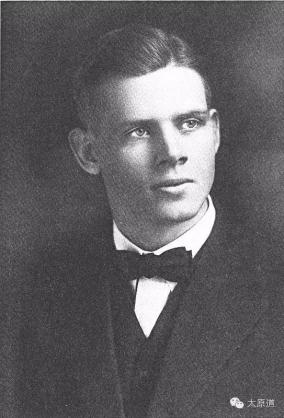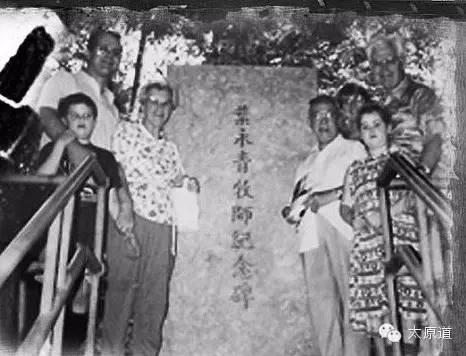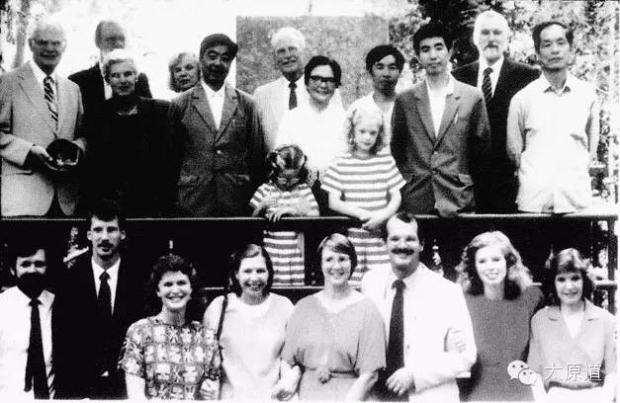In 1918, Peter Torjesen (also known as Pastor Ye in China), a 26-year-old Norwegian came to China as he devoted himself to start mission work in Hequ, Jiangxi Province. Everyone morning, Ye woke up very early with his wife. Then, they walked throughout the town or rode on a mule to spread the gospel. His mission work not just made his life both busy and joyful but also tied an emotional knot to the local people staying in Hequ.
Their first son was born in 1924. Peter's wife wrote to her family in a letter that," The young and the old all came to visit our son, who liked to smile adorably at everyone before him. Before he turned 2 years old, I always carried him while walking around the whole town. Everytime I went to meet the girls in church to give them tuition or visit women in the village, Paul always loved to follow me around. I could see that he delighted in such activities, too."
In 1925, Peter's second child, a very pretty girl named Maria, was born in Hequ. Maria later shared that, "I spent my first 10 years of life in Hequ. When I first came here, people even called me a "Caucasian Ghost" as they had no exposure to any foreigner like me before. But after some time of getting to know them, they actually became very friendly to me. I had many good friends in China and so many beautiful childhood memories were possible because of them."
In Maria's book Pastor Ye's Family in China, she writes that, " I was born and grew up at the feet of the northern part of the Great Wall of China. I remember there's a Chinese auntie called Wang who always came to take care of our family. She also loved telling interesting stories about fairies to us." According Maria's, her younger brother also had a happy childhood in Jiangxi.
While doing his mission in Jiangxi, Ye and his wife realized that local girls did not have any opportunities to go through a proper education. Besides, locals in the village had to walk a long distance in order to access to the nearest clinic. As such, the couple decided to establish both a clinic and a Christian school in order to meet local needs. Pastor Ye's grandson shared that Hequ was in extreme poverty at that time to the extent that one may not find any clinics after walking on feet for a good days. In fact, the nearest hospital required them a 10-day-long walk from Hequ! Hence, once the new clinic in Hequ was open for operation, massive crowd was attracted to it.
In 1937, the Sino-Japanese war broke forth. Jiangxi became one of the worst affected provinces in China. The clinic established by Pastor Ye's wife was thus filled up with casualties from the war. Homeless families, sometimes amounting to more than 2000 people, also rushed into the church for shelter and protection.
Unfortunately, Ye's deeds done for the Chinese people had stirred hatred among the Japanese army. As a result, 34 helicopters bombed Hequ shortly after, stealing the life of Pastor Ye's life during the attack.
Four days after Ye's passing, his wife wrote to their family back in Norway that," Peter (Pastor Ye) was lying there silently with his handsome, peaceful expression and a subtle trace of smile on his face. Our helpers Nie and Wang have been helping us faithfully throughout this tough time. Our minds fail to register anything. All we know how to do is to pour out our tears and sorrows. Everyone still seem to refuse believing in Peter's death. They say that Peter had sacrificed his own life for the lives of others."
"Regardless of helpers or church goers, everyone were tearing profusely for Peter. Thus, I'm more assured that these people from Hequ indeed love Peter deeply."
On 1 Jan, 1940, Pastor Ye was buried near a place called Shuicaogu, "My beloved husband will thus rest on the land of China forever."
In 1945 after Japan surrenders itself to China, Ye's family decided to leave China. "Ye's wife said," Many years have gone pass but we still manage to catch nothing regarding the situation in Hequ all this while. Something is definitely missing as we feel that we are separated from our "root" ever since. I'm saddened that I can no longer see my beloved friends in China."
However, a miracle happened in 1987 when a doctor named Zhang Peiying came from Jiangxi to America for family visit purpose. She bumped into Ye's daughter coincidentally. Dr Zhang then was deeply touched by the Ye Family's stories and immediately availed herself to help the family re-connect with Hequ. As such, Ye's children and grandchildren managed to re-connect to Hequ after 40 years of separation.
The Ye Family called the year 1990 as "the Year of Revival" and "the Flourishing Year". In this year, the Jiangxi government officially invited the family to come back to Hequ in conjunction with Ye's commemoration ceremony. "Finally, our family is gonna go back home!" Maria recalled her excitement at that time.
Pastor's Ye's commemoration script was written as such, "Ye's selfless love and sacrifice for China shall be deeply-etched and commemorated at all our hearts. This monument is established in remembrance of the selfless deeds that he's done for people in Hequ."
In 1997, Ye's elder grandson named Ye Fuli, established Shanxi Yongwing Consultation Service Centre in Taiyuan. The centre provides medical, agricultural, educational and consulting services to the public. Fuli said that the centre also has an additional function of enhancing understanding between foreign and local Chinese enterprises as well as for more partnership opportunities to be made. He believes that his mission here is to help foreigners bridge a deeper understanding of Jiangxi.
Fuli and his wife, Sandy has a son and a daughter. Fuji once shared, "Many people have asked me why I choose to stay in Jiangxi instead of a more developed city e.g. Beijing or Shanghai. Well, I think Jiangxi is also a decent city. More importantly, I choose to stay here in remembrance of my grandpa."
Translated By: Maggie Li















